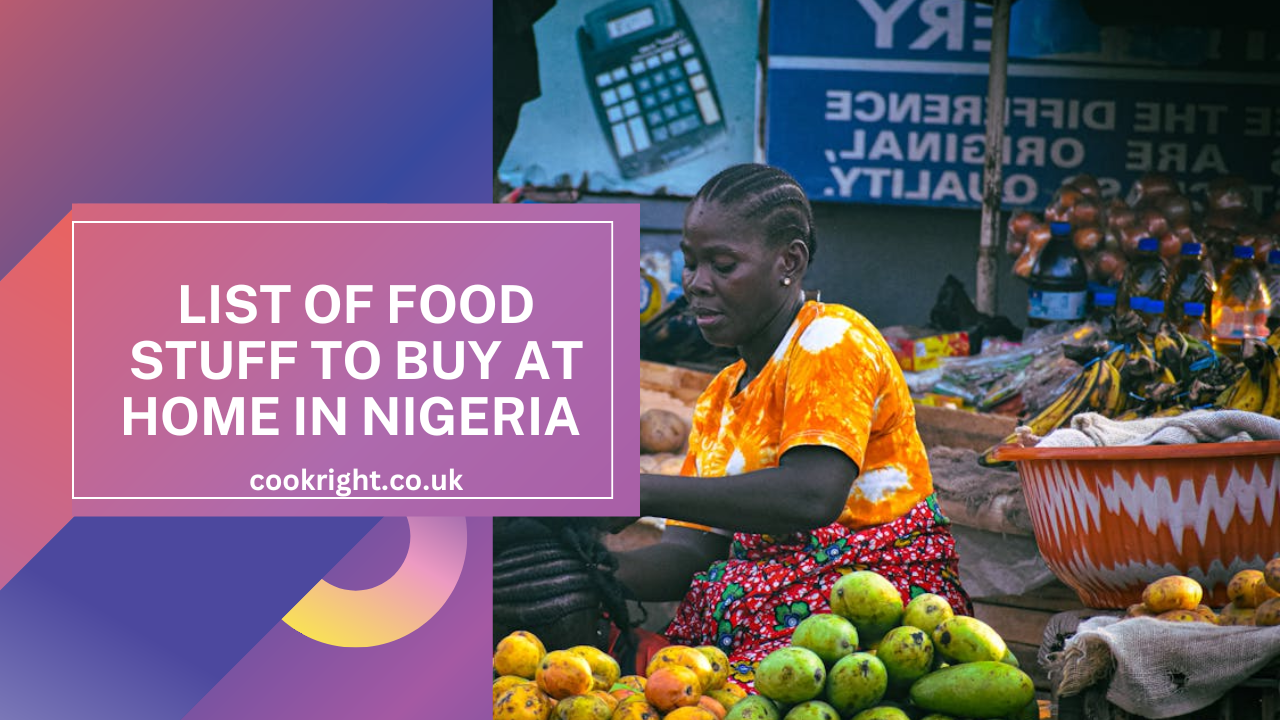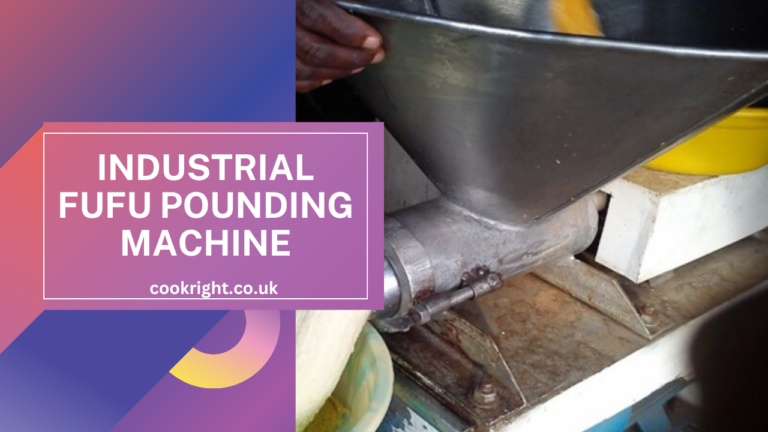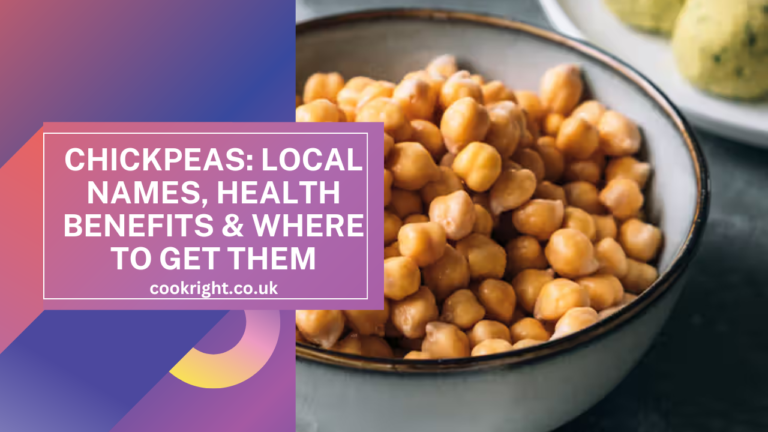Nigeria, with its rich and diverse culinary culture, offers a wide array of food items that are essential for every home. From staple foods to fresh produce, spices, and condiments, stocking your kitchen with the right items can make meal preparation easier and more enjoyable. This guide provides an elaborate list of essential food items to buy for your home in Nigeria, along with their average prices to help you budget effectively. Please note that prices may vary based on location, market conditions, and seasonal changes.
Essential Food Items to Buy at Home in Nigeria
Some of the essential food items every Nigerian home must have include;
1. Staple Foods
Staple foods form the foundation of most Nigerian meals. Here’s a list of essential staples:
- Rice (50kg bag): ₦30,000 – ₦40,000
- Rice is a major staple in Nigeria, used in various dishes like Jollof rice, fried rice, and plain white rice served with soups or stews.
- Beans (Oloyin or Honey Beans, 25kg bag): ₦20,000 – ₦25,000
- Beans are used in a variety of meals, including bean porridge, akara, and moi moi.
- Garri (50kg bag): ₦15,000 – ₦20,000
- Garri is a popular cassava product used in preparing eba, a staple for many Nigerian soups.
- Yam (per tuber): ₦800 – ₦1,500
- Yam can be boiled, fried, pounded, or used to make yam porridge. Prices vary depending on the size of the tuber.
- Semovita (10kg bag): ₦7,000 – ₦9,000
- Semovita is a common alternative to garri and pounded yam, often served with soups.
- Spaghetti/Pasta (per pack): ₦400 – ₦600
- Pasta dishes are quick and easy to make, serving as a go-to meal for many Nigerian families.
- Plantain (per dozen): ₦1,500 – ₦2,500
- Plantains can be boiled, fried, or roasted, and are a delicious accompaniment to many Nigerian dishes.
2. Proteins
Proteins are essential for a balanced diet, and Nigerian households typically include a variety of protein sources:
- Chicken (per kg): ₦2,000 – ₦3,500
- Chicken is a versatile protein used in stews, soups, and grilled dishes.
- Beef (per kg): ₦3,000 – ₦4,000
- Beef is commonly used in soups, stews, and grilled dishes. Prices may vary depending on the cut.
- Fish (e.g., Titus, per kg): ₦1,500 – ₦2,500
- Fish is a popular protein in Nigerian households, available fresh, smoked, or dried.
- Eggs (per crate of 30): ₦2,000 – ₦2,500
- Eggs are a quick protein source, perfect for breakfast or light meals.
- Goat Meat (per kg): ₦4,000 – ₦5,500
- Goat meat is favored for its rich flavor and is often used in pepper soups and stews.
3. Vegetables and Fruits
Fresh vegetables and fruits are crucial for a healthy diet. Here are some commonly used items:
- Tomatoes (per basket): ₦10,000 – ₦15,000
- Tomatoes are essential for making stews, sauces, and soups in Nigerian cuisine.
- Pepper (per basket): ₦5,000 – ₦8,000
- Different types of peppers, including bell peppers, scotch bonnets, and chili peppers, add spice and flavor to dishes.
- Onions (per bag): ₦20,000 – ₦30,000
- Onions are a key ingredient in nearly every Nigerian dish, adding flavor and aroma.
- Leafy Greens (e.g., Ugu, Scent Leaf, per bunch): ₦200 – ₦500
- Leafy greens are used in soups and stews for added nutrients and flavor.
- Carrots (per kg): ₦1,000 – ₦1,500
- Carrots add a crunchy texture and are used in salads, fried rice, and stews.
- Bananas (per dozen): ₦800 – ₦1,500
- Bananas are a popular fruit, eaten as a snack or used in desserts.
4. Tubers and Roots
Tubers and roots are also common in Nigerian households:
- Cassava (per tuber): ₦300 – ₦600
- Cassava is used to make garri, fufu, and other local delicacies.
- Potatoes (Sweet or Irish, per kg): ₦800 – ₦1,500
- Potatoes can be boiled, fried, or mashed, offering a variety of meal options.
5. Spices and Condiments
Spices and condiments are essential for flavoring food:
- Salt (1kg pack): ₦200 – ₦300
- Salt is a basic seasoning used in nearly all cooking.
- Maggi/Knorr Cubes (per pack): ₦500 – ₦800
- These seasoning cubes are used to enhance the taste of soups, stews, and sauces.
- Groundnut Oil (5 liters): ₦6,000 – ₦8,000
- Groundnut oil is commonly used for frying and cooking.
- Palm Oil (5 liters): ₦5,000 – ₦7,000
- Palm oil is a staple in many Nigerian dishes, including soups and stews.
- Pepper Soup Spice (per pack): ₦300 – ₦500
- Pepper soup spice is a blend of various spices used to make the popular Nigerian pepper soup.
6. Grains and Flours
Grains and flours are also necessary for a well-rounded Nigerian pantry:
- Maize Flour (10kg bag): ₦4,000 – ₦5,000
- Maize flour is used to make cornmeal and other local dishes.
- Wheat Flour (10kg bag): ₦6,000 – ₦8,000
- Wheat flour is used for baking bread, cakes, and other pastries.
7. Beverages
Stocking up on beverages is essential for refreshments:
- Tea (per pack of 25 bags): ₦500 – ₦800
- Tea is a common breakfast beverage in many Nigerian homes.
- Coffee (per pack): ₦1,000 – ₦2,000
- Coffee is another popular beverage, especially among those who prefer a quick caffeine fix.
- Milk (Powdered, per tin): ₦1,500 – ₦2,500
- Milk is used in beverages, baking, and cooking.
- Soft Drinks (per bottle): ₦150 – ₦200
- Soft drinks are a popular refreshment choice for many Nigerians.
8. Snacks and Extras
Having snacks at home can be convenient for quick bites:
- Biscuits (per pack): ₦200 – ₦500
- Biscuits are a popular snack among children and adults alike.
- Groundnuts (per bottle): ₦500 – ₦800
- Groundnuts are enjoyed as snacks and also used in cooking.
- Chin Chin (per bag): ₦1,000 – ₦2,000
- Chin Chin is a popular fried snack made from dough.
Conclusion
Stocking your home with these essential food items ensures that you are well-prepared to make a wide variety of Nigerian dishes. It is important to note that prices are subject to change due to inflation, location, and market fluctuations. However, having a budget and shopping list can help you manage your household expenses effectively. Whether you prefer shopping in local markets or supermarkets, this comprehensive guide serves as a starting point for your home food needs in Nigeria.








